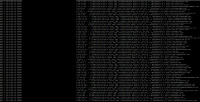We've noticed a massive increase in the amount of outbound DDOS attempted on our servers lately. Most of it seems to be coming from a script called 'cupsddh'. We came up with a script to monitor and stop this infection from sending ddos and we figured we'd share it with the community.
The infection appears to be caused by weak passwords and once the VPS is infected the infection sets up a cron job to keep itself installed and communicating with it's 'mothership'.
The script below should be run in a screen on each node you wish to prevent this particular infection from sending ddos on. It takes very little resources to run and it basically stops the DDOS in it's tracks without killing the VPS. The script scans process ids to find copies of the infection then finds out what port that infection is using. After finding the port it uses iptables on the VPS to block the DDOS.
http://pastie.org/pastes/8906293/text?key=3wdhkakgguyshkjeflkk3g
The script is in no way perfect, but it does a decent job at stopping DDOS from this particular infection. Feel free to do whatever you like with it.
This can also be applied to other variants like: "skysappd", "ks(a)appd", etc.
The infection appears to be caused by weak passwords and once the VPS is infected the infection sets up a cron job to keep itself installed and communicating with it's 'mothership'.
The script below should be run in a screen on each node you wish to prevent this particular infection from sending ddos on. It takes very little resources to run and it basically stops the DDOS in it's tracks without killing the VPS. The script scans process ids to find copies of the infection then finds out what port that infection is using. After finding the port it uses iptables on the VPS to block the DDOS.
http://pastie.org/pastes/8906293/text?key=3wdhkakgguyshkjeflkk3g
The script is in no way perfect, but it does a decent job at stopping DDOS from this particular infection. Feel free to do whatever you like with it.
This can also be applied to other variants like: "skysappd", "ks(a)appd", etc.

